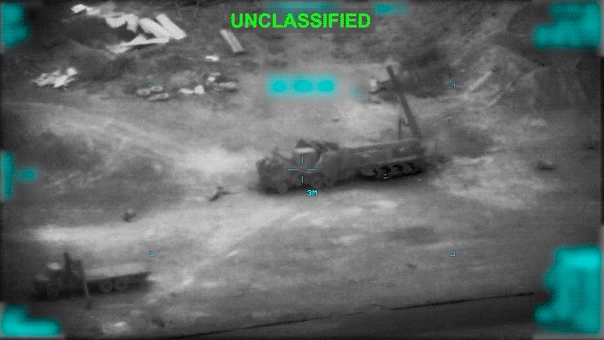Hoping to score a knockout blow against the Mexican cartels, U.S. law enforcement created "Operation Fast and Furious" to stop gun smuggling by allowing the weapons into Mexico, thereby exposing the entire cartel network to prosecution, according to a new congressional report on the U.S. program.
Instead, the operation was a bust, a deadly strategy that left a trail of blood and bodies throughout the Southwest, the scathing congressional report said, concluding that a reckless and irresponsible chain of command ignored repeated warnings the plan would fail.
"You've got people who are dead, you have weapons that are missing and you have an administration that doesn't seem to want to take any accountability for it," said Rep. Jason Chaffetz, R-Utah and a member of the House Government Oversight Committee. "There is absolutely no justification, no justification for this. There are people that are going to have to be held accountable."
That effort begins Wednesday morning when the committee opens hearings on Operation Fast and Furious. Those testifying include the family of murdered Border Patrol Agent Brian Terry and three ATF special agents who say the plan was doomed from the very beginning.
Findings from the preliminary report include:
-- Agents expected to interdict weapons, yet were told to stand down and “just surveil.” Agents therefore did not act. They watched straw purchasers buy hundreds of weapons illegally and transfer those weapons to unknown third parties and stash houses.
-- ATF agents complained about the strategy of allowing guns to walk in Operation Fast and Furious. Leadership ignored their concerns. Instead, supervisors told the agents to “get with the program” because senior ATF officials had sanctioned the operation.
-- Agents knew that given the large numbers of weapons being trafficked to Mexico, tragic results were a near certainty.
-- Operation Fast and Furious contributed to the increasing violence and deaths in Mexico. This result was regarded with giddy optimism by ATF supervisors hoping that guns recovered at crime scenes in Mexico would provide the nexus to straw purchasers in Phoenix.
That last finding is sure to anger Mexico, which has so far been muted in its criticism. In a March 2010 memo, ATF says it allowed gun smugglers to buy 359 guns while 958 people died in Mexico the same month. Internally, the agency was "trumpeting up the violence that was occurring as a result of an ATF sanctioned program."
Agents say the man in charge of the operation in Phoenix, "was jovial, if not giddy" when Fast and Furious guns were found in Mexico. One agent described in detail his disgust at the self-satisfaction of ATF leadership for sending guns into what they knew to be a war zone, saying, "I cannot see anyone who has one iota of concern for human life being OK with this."
In a question-and-answer session with congressional investigators, he was asked, "So is it a fair, predictable outcome of the policy that there would be essentially collateral damage in terms of human lives?"
"Sure," the agent replied, "That's correct."
The report also clarifies that the ATF did not "lose track" of guns. Rather it intentionally allowed guns to "fall into the hands of criminals and bandits on both sides of the border."
Both line agents and gun dealers repeatedly warned supervisors the guns would end up killing people, the report says, "but ATF supervisors told agents to follow orders because this was sanctioned from above. They told gun dealers not to worry because they would make sure the guns didn't fall into the wrong hands."
"Some people say Fast and Furious is a good idea that was just managed poorly," the House committee's chairman, Rep. Darrell Issa, R-Calif., said. "Whether you think is good idea and badly run or just a bad idea, it's very clear this administration is not overseeing this in a way that protects the American people."
The program came to a crashing halt in January with the death of U.S. Border Patrol Agent Brian Terry, shot by an AK-47 purchased a year earlier by Jamie Avila, a known gun smuggler who had been under ATF surveillance since November of 2009.
The report says, "The death of Border Agent Brian Terry was likely a preventable tragedy."
Equally discouraging, the report concludes the operation itself was a failure, saying after 18 months of investigative work, Fast and Furious resulted only in indictments of 20 straw purchasers, buyers who were known before the operation even began.
"Phoenix ATF Special Agent in Charge (SAC) William Newell’s statement that the indictments represent the take-down of a firearms trafficking ring from top to bottom, and his statement that ATF never allowed guns to walk are incredible, false, and a source of much frustration to the agents," it says.












































